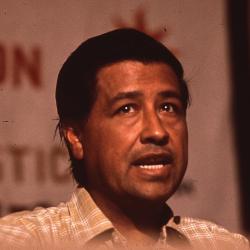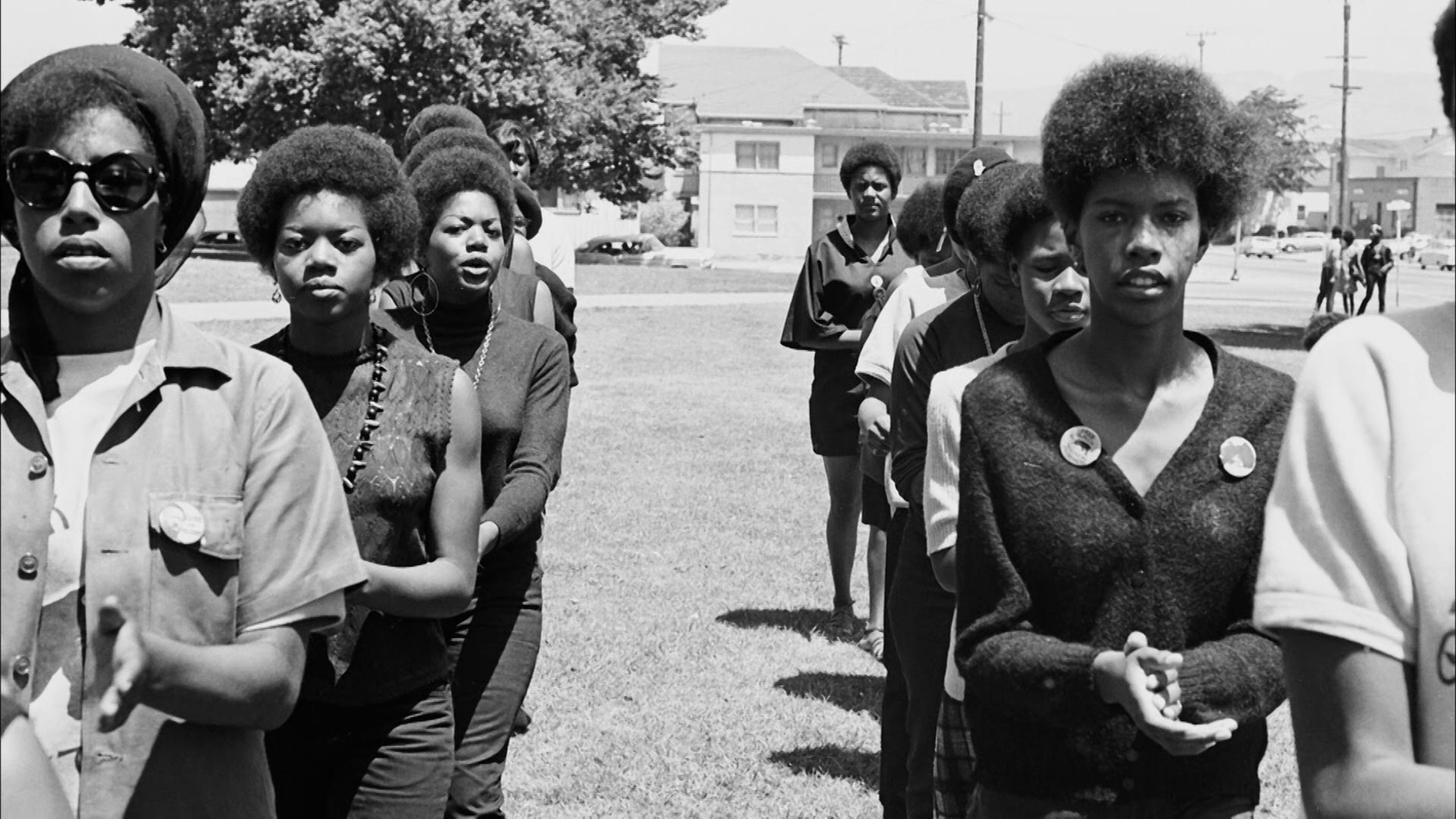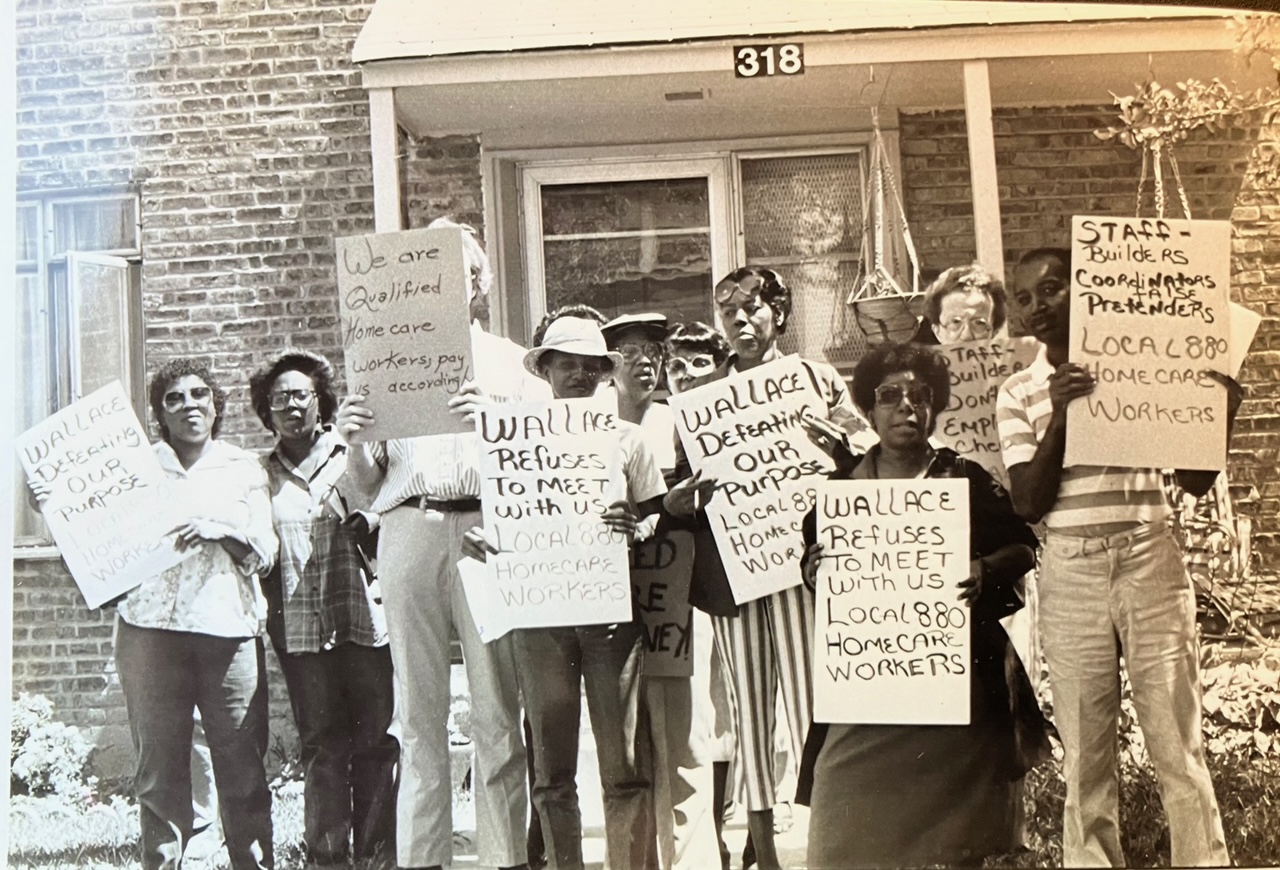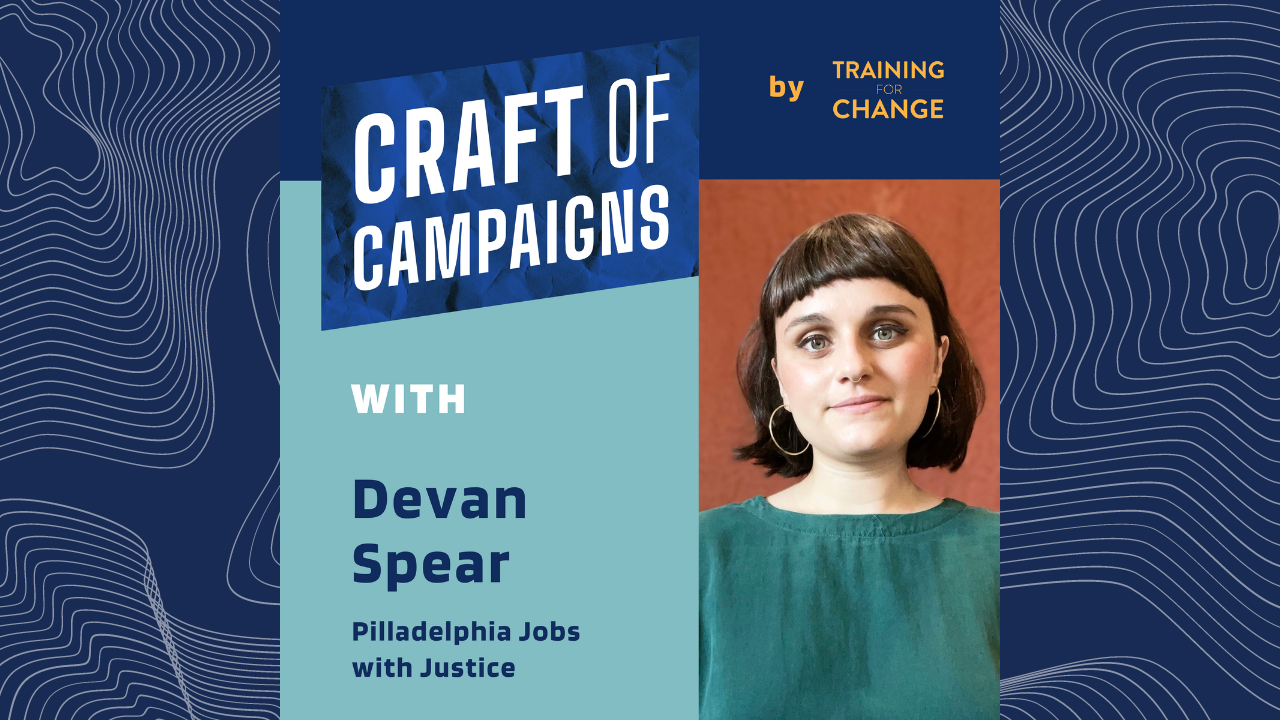In tracing the lineage of organizing in the United States, it’s hard to underestimate the importance of Cesar Chavez and the team of organizers and leaders who built the United Farmworkers, and before it, the Community Service Organization. Chavez was a thoughtful analyst about many aspects [not all] of the work , as is seen in this piece, “An Organizer’s Tale,” which launches our regular series From the Archives. We have much more in our files – and hopefully yours – to share, but today we’re excited to bring you this important piece.
-- The Editors
It really started for me 16 years ago in San Jose, California, when I was working on an apricot farm. We figured he was just another social worker doing a study of farm conditions, and I kept refusing to meet with him. But he was persistent. Finally, I got together some of the rough element in San Jose. We were going to have a little reception for him to teach the gringo a little bit of how we felt. There were about 30 of us in the house, young guys mostly. I was supposed to give them a signal - change my cigarette from my right hand to my left, and then we were going to give him a lot of hell. But he started talking and the more he talked, the more wide-eyed I became and the less inclined I was to give the signal. A couple of guys who were pretty drunk at the time still wanted to give the gringo the business, but we got rid of them. This fellow was making a lot of sense, and I wanted to hear what he had to say.
His name was Fred Ross, and he was an organizer for the Community Service Organization (CSO) which was working with Mexican-Americans in the cities. I became immediately really involved. Before long I was heading a voter registration drive. All the time I was observing the things Fred did, secretly, because I wanted to learn how to organize, to see how it was done. I was impressed with his patience and understanding of people. I thought this was a tool, one of the greatest things he had.
It was pretty rough for me at first. I was changing and had to take a lot of ridicule from the kids my age, the rough characters I worked with in the fields. They would say, "Hey, big shot. Now that you're a politico, why are you working here for 65 cents an hour?" I might add that our neighborhood had the highest percentage of San Quentin graduates. It was a game among the pachucos in the sense that we defended ourselves from outsiders, although inside the neighborhood there was not a lot of fighting.
After six months of working every night in San Jose, Fred assigned me to take over the CSO chapter in Decoto. It was a tough spot to fill. I would suggest something, and people would say, "No, let's wait till Fred gets back," or "Fred wouldn't do it that way." This is pretty much a pattern with people, I discovered, whether I was put in Fred's position, or later, when someone else was put in my position. After the Decoto assignment I was sent to start a new chapter in Oakland. Before I left, Fred came to a place in San Jose called the Hole-in-the-Wall and we talked for half an hour over coffee. He was in a rush to leave, but I wanted to keep him talking; I was that scared of my assignment.
There were hard times in Oakland. First of all, it was a big city and I'd get lost every time I went anywhere. Then I arranged a series of house meetings. I would get to the meeting early and drive back and forth past the house, too nervous to go in and face the people. Finally I would force myself to go inside and sit in a corner. I was quite thin then, and young, and most of the people were middle-aged. Someone would say, "Where's the organizer?" And I would pipe up, "Here I am." Then they would say in Spanish - these were very poor people and we hardly spoke anything but Spanish - "Ha! This kid?" Most of them said they were interested, but the hardest part was to get them to start pushing themselves, on their own initiative.
The idea was to set up a meeting and then get each attending person to call his own house meeting, inviting new people - a sort of chain letter effect. After a house meeting I would lie awake going over the whole thing, playing the tape back, trying to see why people laughed at one point, or why they were for one thing and against another. I was also learning to read and write, those late evenings. I had left school in the 7th grade after attending 67 different schools, and my reading wasn't the best.
At our first organizing meeting we had 368 people. I'll never forget it because it was very important to me. You eat your heart out; the meeting is called for 7 o'clock and you start to worry about 4. You wait. Will they show up? Then the first one arrives. By 7 there are only 20 people, you have everything in order, you have to look calm. But little by little they filter in and at a certain point you know it will be a success.
After four months in Oakland, I was transferred. The chapter was beginning to move on its own, so Fred assigned me to organize the San Joaquin Valley. Over the months I developed what I used to call schemes or tricks - now I call them techniques - of making initial contacts. The main thing in convincing someone is to spend time with him. It doesn't matter if he can read, write or even speak well. What is important is that he is a man and second, that he has shown some initial interest. One good way to develop leadership is to take a man with you in your car. And it works a lot better if you're doing the driving; that way you are in charge. You drive, he sits there, and you talk. These little things were very important to me; I was caught in a big game by then, figuring out what makes people work. I found that if you work hard enough you can usually shake people into working too, those who are concerned. You work harder and they work harder still, up to a point and then they pass you. Then, of course, they're on their own.
I also learned to keep away from the established groups and so-called leaders, and to guard against philosophizing. Working with low-income people is very different from working with the professionals, who like to sit around talking about how to play politics. When you're trying to recruit a farmworker, you have to paint a little picture, and then you have to color the picture in. We found out that the harder a guy is to convince, the better leader or member he becomes. When you exert yourself to convince him, you have his confidence and he has good motivation. A lot of people who say OK right away wind up hanging around the office, taking up the workers' time.
During the McCarthy era in one Valley town, I was subjected to a lot of redbaiting. We had been recruiting people for citizenship classes at the high school when we got into a quarrel with the naturalization examiner. He was rejecting people on the grounds that they were just parroting what they learned in citizenship class. One day we had a meeting about it in Fresno, and I took along some of the leaders of our local chapter. Some redbaiting officials gave us a hard time, and the people got scared and took his side. They did it because it seemed easy at the moment, even though they knew that sticking with me was the right thing to do. It was disgusting. When we left the building they walked by themselves ahead of me as if I had some kind of communicable disease. I had been working with these people for three months and I was very sad to see that. It taught me a great lesson.
That night I learned that the chapter officers were holding a meeting to review my letters and printed materials to see if I really was a Communist. So I drove out there and walked right in on their meeting. I said, "I hear you've been discussing me, and I thought it would be nice if I was here to defend myself. Not that it matters that much to you or even to me, because as far as I'm concerned you are a bunch of cowards." At that they began to apologize. "Let's forget it," they said. "You're a nice guy." But I didn't want apologies. I wanted a full discussion. I told them I didn't give a damn, but that they had to learn to distinguish fact from what appeared to be a fact because of fear. I kept them there till two in the morning. Some of the women cried. I don't know if they investigated me any further, but I stayed on another few months and things worked out.
This was not an isolated case. Often when we'd leave people to themselves they would get frightened and draw back into their shells where they had been all the years. And I learned quickly that there is no real appreciation. Whatever you do, and no matter what reasons you may give to others, you do it because you want to see it done, or maybe because you want power. And there shouldn't be any appreciation, understandably. I know good organizers who were destroyed, washed out, because they expected people to appreciate what they'd done. Anyone who comes in with the idea that farmworkers are free of sin and that the growers are all bastards, either has never dealt with the situation or is an idealist of the first order. Things don't work that way.
For more than 10 years I worked for the CSO. As the organization grew, we found ourselves meeting in fancier and fancier motels and holding expensive conventions. Doctors, lawyers and politicians began joining. They would get elected to some office in the organization and then, for all practical purposes, leave. Intent on using the CSO for their own prestige purposes, these "leaders," many of them, lacked the urgency we had to have. When I became general director I began to press for a program to organize farmworkers into a union, an idea most of the leadership opposed. So I started a revolt within the CSO. I refused to sit at the head table at meetings, refused to wear a suit and tie, and finally I even refused to shave and cut my hair. It used to embarrass some of the professionals.
At every meeting I got up and gave my standard speech: we shouldn't meet in fancy motels, we were getting away from the people, farmworkers had to be organized. But nothing happened. In March of '62 I resigned and came to Delano to begin organizing the Valley on my own.
By hand I drew a map of all the towns between Arvin and Stockton - 86 of them, including farming camps - and decided to hit them all to get a small nucleus of people working in each. For six months I traveled around, planting an idea. We had a simple questionnaire, a little card with space for name, address and how much the worker thought he ought to be paid. My wife, Helen, mimeographed them, and we took our kids for two or three day jaunts to these towns, distributing the cards door-to-door and to camps and groceries.
Some 80,000 cards were sent back from eight Valley counties. I got a lot of contacts that way, but I was shocked at the wages the people were asking. The growers were paying $1 and $1.15, and maybe 95 percent of the people thought they should be getting only $1.25. Sometimes people scribbled messages on the cards: "I hope to God we win" or "Do you think we can win?" or "I'd like to know more." So I separated the cards with the pencilled notes, got in my car and went to those people.
We didn't have any money at all in those days, none for gas and hardly any for food. So I went to people and started asking for food. It turned out to be about the best thing I could have done, although at first it's hard on your pride. Some of our best members came in that way. If people give you their food, they'll give you their hearts. Several months and many meetings later we had a working organization, and this time the leaders were the people.
None of the farmworkers had collective bargaining contracts, and I thought it would take ten years before we got that first contract. I wanted desperately to get some color into the movement, to give people something they could identify with, like a flag. I was reading some books about how various leaders discovered what colors contrasted and stood out the best. The Egyptians had found that a red field with a white circle and a black emblem in the center crashed into your eyes like nothing else. I wanted to use the Aztec eagle in the center, as on the Mexican flag. So I told my cousin Manuel, "Draw an Aztec eagle." Manuel had a little trouble with it, so we modified the eagle to make it easier for people to draw.
The first big meeting of what we decided to call the National Farm Workers Association was held in September 1962, at Fresno, with 287 people. We had our huge red flag on the wall, with paper tacked over it. When the time came, Manuel pulled a cord ripping the paper off the flag and all of a sudden it hit the people. Some of them wondered if it was a Communist flag, and I said it probably looked more like a neo-Nazi emblem than anything else. But they wanted an explanation, so Manuel got up and said, "When that damn eagle flies - that's when the farmworkers' problems are going to be solved."
One of the first things I decided was that outside money wasn't going to organize people, at least not in the beginning. I even turned down a grant from a private group - $50,000 to go directly to organize farmworkers - for just this reason. Even when there are no strings attached, you are still compromised because you feel you have to produce immediate results. This is bad, because it takes a long time to build a movement, and your organization suffers if you get too far ahead of the people it belongs to. We set the dues at $42 a year per family, really meaningful dues, but of the 212 we got to pay, only 12 remained by June of '63. We were discouraged at that, but not enough to make us quit.
Money was always a problem. Once we were facing a $180 gas bill on a credit card I'd got a long time ago and was about to lose. And we had to keep that credit card. One day my wife and I were picking cotton, pulling bolls, to make a little money to live on. Helen said to me, "Do you put all this in the bag, or just the cotton?" I thought she was kidding and told her to throw the whole boll in so that she had nothing but a sack of bolls at the weighing. The man said, "Whose sack is this?" I said, well, my wife's, and he told us we were fired. "Look at all that crap you brought in," he said. Helen and I started laughing. We were going anyway. We took the $4 we had earned and spent it at a grocery store where they were giving away a $100 prize. Each time you shopped they'd give you one of the letters of M-O-N-E-Y or a flag: you had to have M-O-N-E-Y plus the flag to win. Helen had already collected the letters and just needed the flag. Anyway, they gave her the ticket. She screamed, "A flag? I don't believe it," ran in and got the $100. She said, "Now we're going to eat steak." But I said no, we're going to pay the gas bill. I don't know if she cried, but I think she did.
It was rough in those early years. Helen was having babies and I was not there when she was at the hospital. But if you haven't got your wife behind you, you can't do many things. There's got to be peace at home. So I did, I think, a fairly good job of organizing her. When we were kids, she lived in Delano and I came to town as a migrant. Once on a date we had a bad experience about segregation at a movie theater, and I put up a fight. We were together then, and still are. I think I'm more of a pacifist than she is. Her father, Fabela, was a colonel with Pancho Villa in the Mexican Revolution. Sometimes she gets angry and tells me, "These scabs - you should deal with them sternly," and I kid her, "It must be too much of that Fabela blood in you."
The movement really caught on in '64. By August we had a thousand members. We'd had a beautiful 90-day drive in Corcoran, where they had the Battle of the Corcoran Farm Camp 30 years ago, and by November we had assets of $25,000 in our credit union, which helped to stabilize the membership. I had gone without pay the whole of 1963. The next year the members voted me a $40 a week salary, after Helen had to quit working in the fields to manage the credit union.
Our first strike was in May of '65, a small one but it prepared us for the big one. A farmworker from McFarland named Epifanio Camacho came to see me. He said he was sick and tired of how people working the roses were being treated, and he was willing to "go the limit." I assigned Manuel and Gilbert Padilla to hold meetings at Camacho's house. The people wanted union recognition, but the real issue, as in most cases when you begin, was wages. They were promised $9 a thousand, but they were actually getting $6.50 and $7 for grafting roses. Most of them signed cards giving us the right to bargain for them. We chose the biggest company, with about 85 employees, not counting the irrigators and supervisors, and we held a series of meetings to prepare the strike and call the vote. There would be no picket line; everyone pledged on their honor not to break the strike.
Early on the first morning of the strike, we sent out 10 cars to check the people's homes. We found lights in five or six homes and knocked on the doors. The men were getting up and we'd say, "Where are you going?" They would dodge, "Oh, uh ... I was just getting up, you know." We'd say, "Well, you're not going to work, are you?" And they'd say no. Dolores Huerta, who was driving the green panel truck, saw a light in one house where four rose-workers lived. They told her they were going to work, even after she reminded them of their pledge. So she moved the truck so it blocked their driveway, turned off the key, put it in her purse and sat there alone.
That morning the company foreman was madder than hell and refused to talk to us. None of the grafters had shown up for work. At 10:30 we started to go to the company office, but it occurred to us that maybe a woman would have a better chance. So Dolores knocked on the office door, saying, "I'm Dolores Huerta from the National Farm Workers Association." "Get out!" the man said, "you Communist. Get out!" I guess they were expecting us, because as Dolores stood arguing with him the cops came and told her to leave. She left.
For two days the fields were idle. On Wednesday they recruited a group of Filipinos from out of town who knew nothing of the strike, maybe 35 of them. They drove through escorted by three sheriff's patrol cars, one in front, one in the middle and one at the rear with a dog. We didn't have a picket line, but we parked across the street and just watched them go through, not saying a word. All but seven stopped working after half an hour, and the rest had quit by mid-afternoon.
The company made an offer the evening of the fourth day, a package deal that amounted to a 120 per cent wage increase, but no contract. We wanted to hold out for a contract and more benefits, but a majority of the rose workers wanted to accept the offer and go back. We are a democratic union so we had to support what they wanted to do. They had a meeting and voted to settle. Then we had a problem with a few militants who wanted to hold out. We had to convince them to go back to work, as a united front, because otherwise they would be canned. So we worked - Tony Orendain and I, Dolores and Guilbert, Jim Drake and all the organizers - knocking on doors till two in the morning, telling people, "You have to go back or you'll lose your job." And they did. They worked.
Our second strike, and our last before the big one at Delano, was in the grapes at Martin's Ranch last summer. The people were getting a raw deal there, being pushed around pretty badly. Gilbert went out to the field, climbed on top of a car and took a strike vote. They voted unanimously to go out. Right away they started bringing in strikebreakers, so we launched a tough attack on the labor contractors, distributed leaflets portraying them as really low characters. We attacked one - Luis Campos - so badly that he just gave up the job, and he took 27 of his men out with him. All he asked was that we distribute another leaflet reinstating him in the community. And we did. What was unusual was that the grower would talk to us. The grower kept saying, "I can't pay. I just haven't got the money." I guess he must have found the money somewhere, because we were asking $1.40 and we got it.
We had just finished the Martin strike when the Agricultural Workers Organizing Committee (AFL-CIO) started a strike against the grape growers, DiGiorgio, Schenley liquors and small growers, asking $1.40 an hour and 25 cents a box. There was a lot of pressure from our members for us to join the strike, but we had some misgivings. We didn't feel ready for a big strike like this one, one that was sure to last a long time. Having no money - just $87 in the strike fund - meant we'd have to depend on God knows who.
Eight days after the strike started - it takes time to get 1,200 people together from all over the Valley - we held a meeting in Delano and voted to go out. I asked the membership to release us from the pledge not to accept outside money, because we'd need it now, a lot of it. The help came. It started because of the close, and I would say even beautiful relationship that we've had with the Migrant Ministry for some years. They were the first to come to our rescue, financially and in every other way, and they spread the word to other benefactors.
We had planned, before, to start a labor school in November. It never happened, but we have the best labor school we could ever have, in the strike. The strike is only a temporary condition, however. We have over 3,000 members spread out over a wide area, and we have to service them when they have problems. We get letters from New Mexico, Colorado, Texas, California, from farmworkers saying, "We're getting together and we need an organizer." It kills you when you haven't got the personnel and resources. You feel badly about not sending an organizer because you look back and remember all the difficulty you had in getting two or three people together, and here they're together. Of course, we're training organizers, many of them younger than I was when I started in CSO. They can work 20 hours a day, sleep four and be ready to hit it again; when you get to be 39 it's a different story.
The people who took part in the strike and the march have something more than their material interest going for them. If it were only material, they wouldn't have stayed on the strike long enough to win. It is difficult to explain. But it flows out in the ordinary things they say. For instance, some of the younger guys are saying, "Where do you think is going to be the next strike?" I say, "Well, we have to win in Delano." They say, "We'll win, but where do we go next?" I say, "Maybe most of us will be working in the fields." They say, "No, I don't want to go and work in the fields. I want to organize. There are a lot of people that need our help. " So I say, "You're going to be pretty poor then, because when you strike you don't have much money." They say they don't care about that.
And others are saying, "I have friends who are working in Texas. If we could only help them." It is bigger, certainly, than just a strike. And if this spirit grows within the farm labor movement, one day we can use the force that we have to help correct a lot of things that are wrong in this society. But that is for the future. Before you can run, you have to learn to walk.
There are vivid memories from my childhood - what we had to go through because of low wages and the conditions, basically because there was no union. I suppose if I wanted to be fair I could say that I'm trying to settle a personal score. I could dramatize it by saying that I want to bring social justice to farmworkers. But the truth is that I went through a lot of hell, and a lot of people did. If we can even the score a little for the workers then we are doing something. Besides, I don't know any other work I like to do better than this. I really don't, you know.
TM/© 2019 The Cesar Chavez Foundation www.chavezfoundation.org






Become a Sustaining Donor to The Forge!
The Forge is built by and for organizers. Though we’ve raised a bit of startup money to build the site, this publication and community will be only as strong as we, together, make it.
Please click below to become a sustainer. When we have some cool swag, you’ll be first in line!
DonateRelated Articles
Will the Revolution Be Funded?
Organizing One of the Largest Black Led Unions in the United States
How Labor Can Fight Fascism
Dusting off a Seven-Year-Old Demand To Win Millions for Philly’s Public Schools
Get the latest articles sent to your inbox